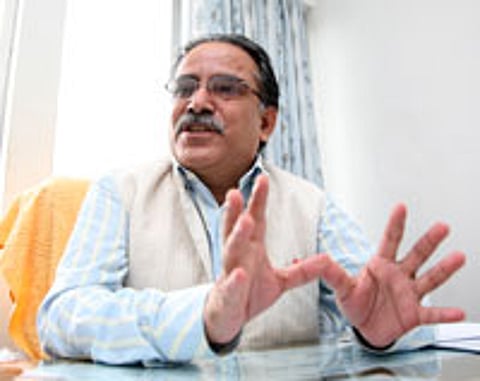The Maobaadi prime minister
Shortly after his win, and before he formally attended office, Prime Minister Dahal sat down with the Kathmandu fortnightly newsmagazine Himal Khabarpatrika. The following is a translation of the conversation, printed here with permission.
How did you reach a consensus to form the government?
This was an effort to forge consensus amidst disagreement. We are moving ahead on the belief that, even with all of the divergences between ourselves we can achieve the kind of consensus that will take us ahead. We share an agenda of social and economic transformation with the UML, and are with the Forum on the matter of formation of a federal republic. The consensus between the three parties will guide the peace process to reach a logical solution, and will also ensure a two-thirds majority in the writing of the constitution itself.

